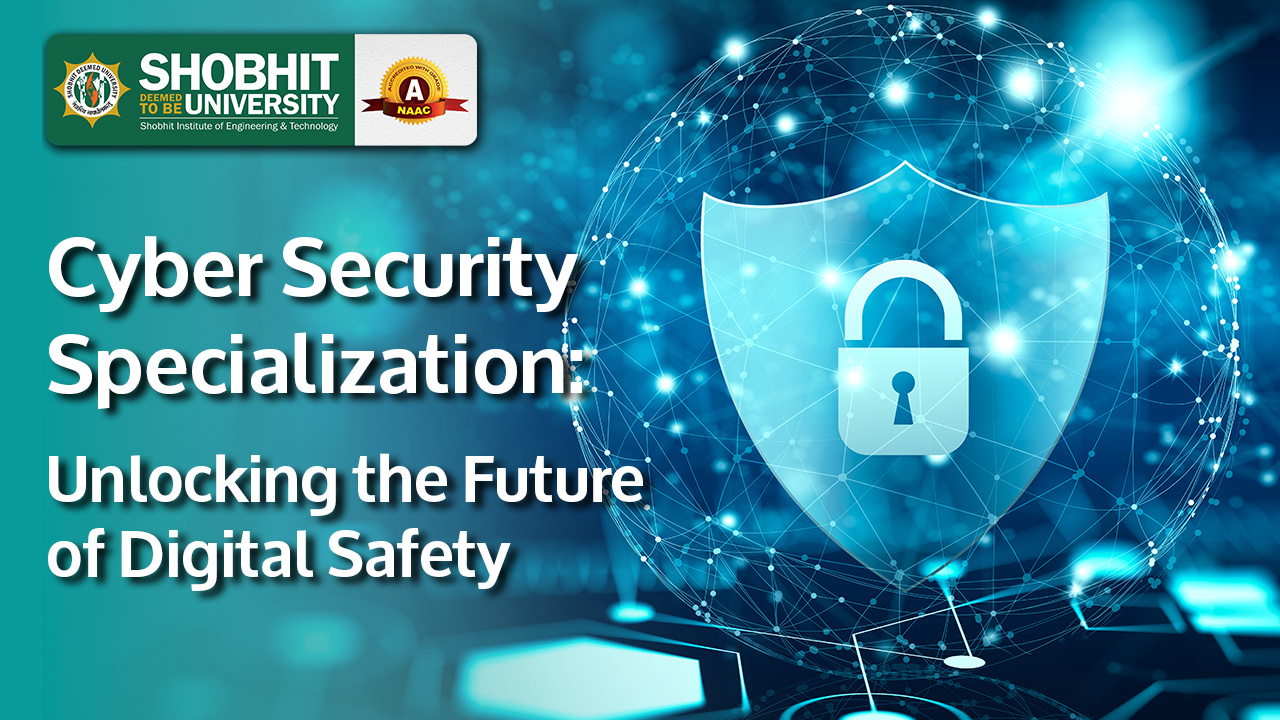
Cyber Security Specialization: Unlocking the Future of Digital Safety
Introduction: Why Cyber Security Matters More Than Ever
In today’s connected world, cyber threats are increasing rapidly. From personal data leaks to ransomware attacks on businesses, no one is truly safe online. As technology changes, so do the methods of cybercriminals. This makes cyber security a crucial skill in every field. Pursuing a specialization in cyber security gives students the tools, knowledge, and ethical mindset they need to protect digital assets in both public and private sectors.
What Does Cyber Security Specialization Cover?
A cyber security specialization teaches students important concepts and strategies needed for modern digital defence. The curriculum combines theoretical knowledge with practical training in the following areas:
Network Security:
Defending computer networks against breaches.
Ethical Hacking:
Finding vulnerabilities by simulating attacks.
Cryptography:
Securing data through encryption and digital signatures.
Cyber Forensics:
Investigating cybercrimes with digital evidence.
Malware Analysis:
Understanding and dealing with malicious software.
Cloud and IoT Security:
Protecting data in distributed environments.
Security Compliance:
Following laws like GDPR and the IT Act.
This approach ensures that students are ready to face real-world challenges from day one.
Tools and Technologies You Will Learn:
Cyber security is not just about theory. It’s also about mastering the latest tools used by professionals worldwide. Popular Tools:
Wireshark: For network protocol analysis.
Kali Linux: A complete suite for penetration testing.
Metasploit: For developing and running exploit code.
Nmap: For port scanning and vulnerability detection.
Splunk and ELK Stack: For Security Information and Event Management (SIEM).
Burp Suite: For web application security testing.
Students gain practical experience through lab sessions, simulations, and real-world case studies.
Emerging Trends in Cyber Security
Staying informed is vital in this changing field. The specialization also covers current threats and technologies, including:
AI in Cyber Security: Automating threat detection and response.
Zero Trust Architecture: Never trust, always verify; security at every level.
Blockchain for Security: Using decentralized ledgers for integrity.
Quantum Cryptography: Preparing for the future of secure communication.
Threat Intelligence Platforms: Anticipating and reducing future attacks.
These developments ensure that learners are ready for today’s threats and tomorrow’s unknowns.
Career Opportunities After Cyber Security Specialization
The demand for cyber security professionals is booming across industries, from IT and finance to government and healthcare.
In-Demand Roles:
- Cyber Security Analyst.
- Penetration Tester (Ethical Hacker).
- Information Security Manager.
- Digital Forensics Expert.
- Security Architect.
- Cloud Security Engineer.
- Incident Response Specialist.
Each of these roles offers great salary potential, job security, and continuous growth. With increasing cyber threats, this field provides a stable career path.
Conclusion: Secure Your Future by Securing the Digital World
Cyber security is now essential. By choosing this specialization, students invest in a career that is technically rewarding and ethically significant. The digital world needs more protectors, and this specialization is the first step toward becoming one. With the right skills, mindset, and education, you can be at the forefront of digital defence, protecting systems, organizations, and communities from cyber harm.
